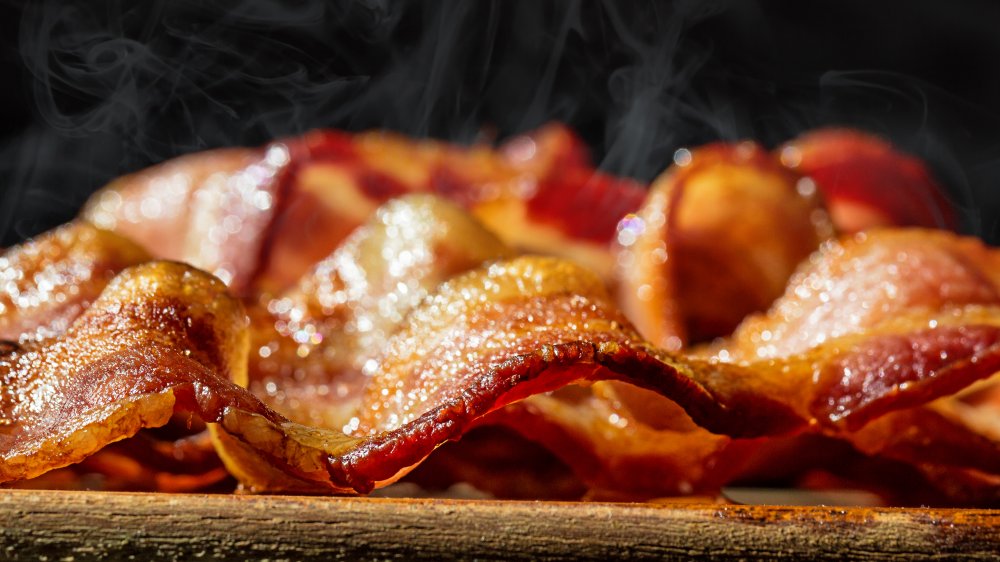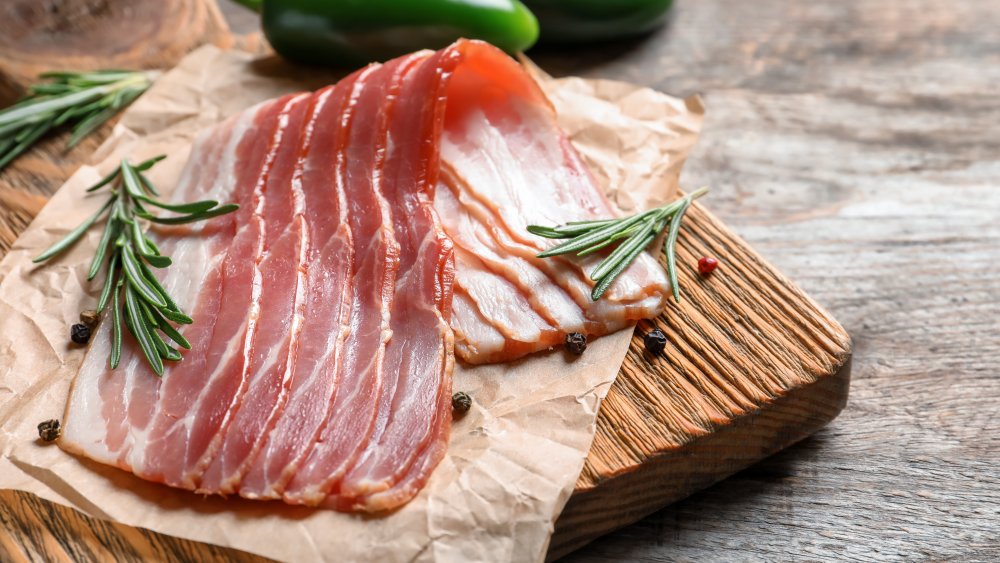Why You Should Think Twice Before Putting Bacon On The Grill, According To A Chef
Pitmasters are throwing just about anything over an open flame these days — not just steak and burgers, but fish, veggies, fresh fruit, cobbler pies, and even bread. What can't you put on a grill? Well, as it turns out, you really shouldn't grill bacon. In an interview with Mashed, Amanda Frederickson, cookbook author and owner of Radish Kitchen, shared all of the reasons why those juicy slabs should stay in your skillet or in the oven — and not grace your grill.
According to Frederickson, grilling bacon is both a safety hazard and a flavor fail. "You should think twice before grilling bacon because of the bacon grease that comes off of bacon when it is cooked," she explained. "As you cook bacon, the fat is rendered, [and] when any type of grease or fat hits an open flame on a grill, it will cause flare ups that are dangerous — and it will alter the taste of your bacon." This will create an unpleasant, charred flavor.
Bacon's high fat content makes it ill-suited for the grill, chef says
The fat that's in bacon is what makes it so delicious — but it's also why it's a barbecue no-no. "Fat is extremely flammable when it hits an open flame and will cause flare ups of fire," Frederickson explained. "The more grease or fat that hits the open flame, the bigger the flare up flame will become," she said, "and the bigger the flare up, the more potential [there is] for a serious hazard to happen." In fact, according to Frederickson, "bacon grease is actually the number one cause of kitchen fires, because people don't realize how flammable it is."
If you're bummed that this safety reminder is getting in the way of the most delicious bacon ever, fret not — grilling bacon is actually a terrible way to enjoy this meaty treat. "Grilling it causes you to lose the bacon fat, which is super flavorful and can be used to saute or cook other foods in," Frederickson said.
To truly savor bacon's flavor, Frederickson recommends baking it on a sheet tray lined with foil or parchment, at 350F for about 18 minutes, or until crispy. "Then I remove the bacon, and actually pour the fat that has accumulated at the bottom into a heat-safe container," she added. This bacon grease is perfect for the other foods she's preparing, "like sautéed vegetables, scrambled eggs, or seared scallops and meats," Frederickson explained.

